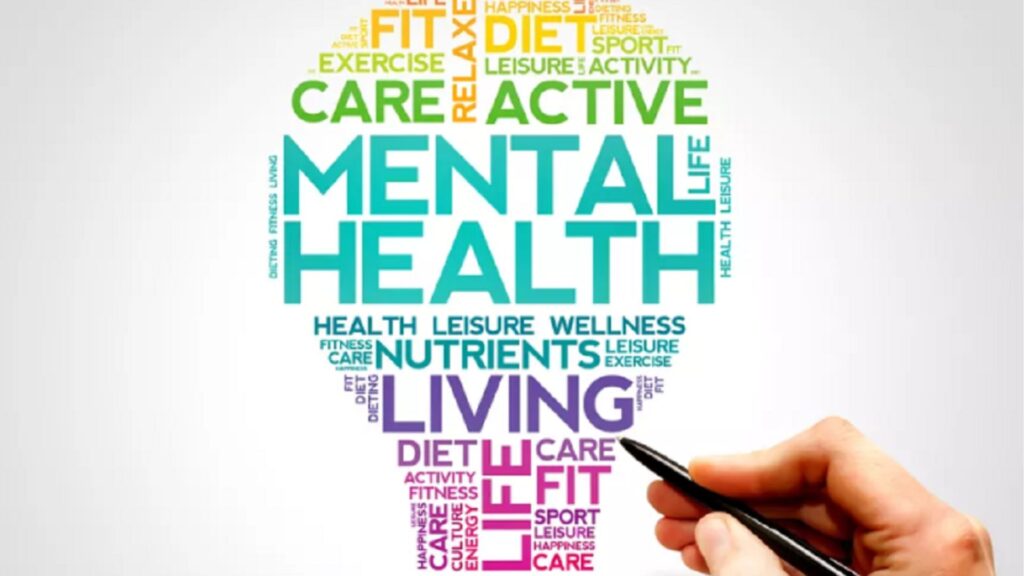As you embark on the journey of creating content for your mental health blog, it becomes imperative to precisely identify the area you wish to discuss. Whether your focus lies in the realm of general mental health, delving into specific disorders, exploring coping mechanisms, or sharing personal experiences, establishing a clear and defined focus will serve as the compass guiding your content creation process. This intentional approach ensures that your blog remains purposeful, resonates effectively with your audience, and contributes meaningfully to the broader discourse surrounding mental health.
1.Choose Your Focus: Define the Specific Aspect of Mental Health You Want to Address

Check Your Health Blogging Niches
- When embarking on your mental health blog journey, it’s crucial to pinpoint the exact aspect you want to discuss. Whether it’s general mental health, specific disorders, coping mechanisms, or personal experiences, having a clear focus will guide your content creation.
- In the initial stages of developing your mental health blog, it is imperative to make a deliberate decision regarding the particular facet of mental health you intend to explore. This could encompass a spectrum ranging from overarching discussions on general mental well-being to more focused examinations of specific disorders, coping mechanisms, personal narratives, or any other pertinent topics within the realm of mental health. By honing in on a specific focus, you not only provide clarity to your content but also tailor your discussions to meet the unique needs and interests of your audience. This purposeful selection ensures that your blog is not only informative but also resonates authentically with those seeking insights into the diverse dimensions of mental health blog.
2.Know Your Audience: Tailor Your Content to Address the Needs of Your Target Readers

Check your affiliate marketing & blogging niches
- Understanding your audience is fundamental. Consider whether you’re writing for individuals dealing with mental health blog challenges, their friends and family seeking insight, or the general public. Tailor your language and approach to meet the needs of your intended readership.
- Establishing a profound understanding of your audience is pivotal in shaping the effectiveness of your mental health blog. Delve into the nuances of your readership, contemplating whether your content is primarily intended for individuals grappling with mental health challenges, the friends and family seeking valuable insights, or the wider general public. In this process, fine-tune your language, tone, and overall approach to align seamlessly with the unique needs and perspectives of your intended readership. By tailoring your content in such a manner, you not only enhance its relevance but also foster a deeper connection with your audience, ensuring that your blog serves as a valuable and empathetic resource within the diverse landscape of mental health discussions.
3.Research and Educate Yourself: Stay Informed About Mental Health Issues and Treatments

- Keeping yourself well-informed is essential. Regularly update your knowledge on mental health issues, available treatments, and coping strategies. Utilize reputable sources to ensure the accuracy and reliability of the information you present in your mental health blog.
- Maintaining a comprehensive understanding of mental health issues and treatments is integral to the credibility of your blog. Commit yourself to ongoing education by regularly updating your knowledge on the latest advancements in mental health, available treatment options, and effective coping strategies. Depend on reputable sources to curate accurate and reliable information, ensuring that the content you present on your blog is not only current but also grounded in the latest research and professional insights. This commitment to staying well-informed positions your blog as a reliable source of knowledge within the ever-evolving landscape of mental health discourse.
4.Be Sensitive and Non-Stigmatizing: Choose Respectful Language to Foster Understanding

Book Your Hosting Now With 90% OFF
- Maintaining sensitivity is paramount when discussing mental health. Select language that is respectful and avoids stigmatizing terms. Create an environment in your blog that fosters support, understanding, and empathy.
- In the realm of mental health discussions, prioritizing sensitivity becomes a foundational principle. Employ language that not only upholds respect but also steers clear of stigmatizing terms that may perpetuate negative stereotypes. Your objective is to curate an environment within your mental health blog that serves as a nurturing space, fostering support, understanding, and empathy. By consciously choosing language that is inclusive and compassionate, you contribute to dismantling barriers and create a platform that encourages open dialogue, acceptance, and a deeper connection within the broader mental health community.
5.Share Personal Experiences (If Comfortable): Share Your Story to Connect and Provide Support

Find your affiliate marketing niches
- Personal experiences can be powerful tools to connect with your readers. If you’re comfortable, share your own mental health journey. However, exercise caution, only divulging what you’re comfortable with, and always be mindful of potential triggers for your audience.
- Harness the potency of personal experiences to establish profound connections with your readers. If you feel at ease, weave your own mental health journey into your blog. Prioritize caution, disclosing only what you are comfortable sharing, and remain vigilant about potential triggers for your audience. This approach not only humanizes your content but also fosters an empathetic space for communal understanding and support.
6.Provide Resources and References: Enhance Your Blog with Links to Reputable Mental Health Resources
- Elevate the value of your mental health blog by including links to credible mental health resources, helplines, and organizations. This not only adds credibility to your content but also offers additional support to your readers seeking more information.
- Enrich your mental health blog by seamlessly incorporating links to reputable resources, helplines, and organizations. Beyond enhancing the credibility of your content, this thoughtful inclusion extends valuable support to your readers, empowering them with additional avenues for seeking trustworthy information and assistance. Elevate your blog into a comprehensive repository, ensuring that it not only informs but actively contributes to the well-being of your audience in their mental health journey.
7.Break Down Complex Topics: Simplify Mental Health Concepts for Better Understanding

- Mental health blog topics can be intricate. Break down complex concepts and explain them in a way that is accessible and easily understood by your audience. Avoid using jargon without providing clear explanations.
- Navigate the intricacies of mental health blog topics with finesse. Break down complex concepts into digestible segments, ensuring clarity and accessibility for your audience. Sidestep the use of jargon without accompanying clear explanations, making certain that your content resonates with readers of diverse backgrounds. By simplifying intricate ideas, your blog becomes an inclusive space, promoting a deeper understanding of mental health concepts for all.
8. Use a Positive Tone: Encourage Positivity, Hope, and Share Success Stories

- Foster a positive atmosphere in your mental health blog. Encourage hope, share insights into coping mechanisms, self-care practices, and recovery strategies. Highlight success stories and achievements within the mental health community to inspire and motivate your readers.
9.Include Practical Tips: Share Actionable Advice for Daily Life Improvement

Book Your Hosting Now With 90% OFF
- Make yourmental health blog a valuable resource by providing practical tips that your readers can integrate into their daily lives. This might include mindfulness exercises, stress reduction techniques, or strategies for building a strong support network.
10.Regularly Update Your Blog: Maintain Consistency to Keep Your Audience Engaged
- Consistency is key in the blogging world. Regularly update your blog with fresh content to keep your audience engaged and returning for more. This could include personal reflections, interviews, or research-based articles on mental health topics.
11.Encourage Interaction: Foster Community by Welcoming Reader Engagement

Find your affiliate marketing niches
- Create a sense of community on your blog by encouraging readers to share their thoughts, experiences, and tips in the comments section. Actively respond to comments to cultivate a supportive environment where individuals feel heard and understood.
12.Use Engaging Multimedia: Enhance Your Content with Visuals for Increased Appeal

- Spice up your blog by incorporating engaging multimedia elements such as images, infographics, or videos. Visuals not only make your content more appealing but also cater to different learning styles, ensuring your message reaches a broader audience.
13.Consider Privacy and Confidentiality: Respectfully Handle Personal Information and Confidentiality

Buy your Best Domain & Hosting
- Uphold privacy standards when discussing individuals or cases in your blog. Avoid sharing personal details that could compromise someone’s confidentiality. Always prioritize the ethical handling of sensitive information.
14.Stay Mindful of Trigger Warnings: Provide Content Warnings for Potentially Triggering Topics
- If your content addresses potentially triggering subjects, show consideration for your readers by providing trigger warnings. This allows individuals to make informed choices about whether to continue reading, prioritizing their mental well-being.
Remember that writing about mental health carries a responsibility to be accurate, supportive, and considerate of your readers’ well-being. If you’re unsure about certain aspects, consult mental health professionals or seek feedback from your audience to continuously improve your content.
Grab the offer soon and earn money through your health blogs

